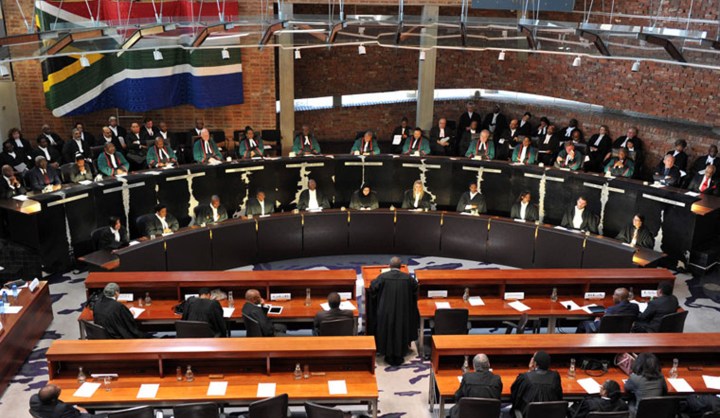South Africa
Judicial Appointments: Helen Suzman Foundation battle for transparency heads to ConCourt

The manner in which the country’s judges are appointed will be under the spotlight in the Constitutional Court on Thursday when an appeal by lobby group the Helen Suzman Foundation will be heard. The appeal is against a 2016 Supreme Court of Appeal judgment that the full deliberations of the Judicial Services Commission (JSC), which assists the President in the appointment of judges, must remain confidential. By MARIANNE THAMM.
The courts have become the final frontier where the limits and freedoms of South Africa’s constitutional democracy have been tested in the past 20 years. Which is why the Helen Suzman Foundation is keen to settle a legal issue on whether the full deliberations of the JSC with regard to candidates should be a matter of public record.
The JSC comprises 23 representatives from the South African legal community and government and is presided over by the Chief Justice. It is the JSC that is tasked with interviewing candidates for judicial posts and it is the commission which ultimately makes recommendations to the President with regard to appointments to the bench.
In 2012, the HSF launched a legal challenge pertaining to the JSC’s interpretation and application of section 174 of the Constitution when recommending individuals to the President for appointment as judges.
When the HSF sought the record of proceedings of the JSC’s 2012 recommendations for judges in the Western Cape, the JSC refused to provide the recording of its deliberations (as to who should or should not be appointed) on grounds that the information was confidential. This prompted the HSF to launch interlocutory proceedings to ensure access to the full record of the JSC’s decision, including the recorded deliberations.
In November 2016, the Supreme Court of Appeal held that the deliberations should remain confidential. It is against this judgment that the HSF is now appealing.
The appeal, to be heard on Thursday, concerns the question of whether the full record of a decision taken by the JSC on the appointment of judges, including the recording of the JSC’s deliberations be made available in legal proceedings (in terms of Rule 53 of the Uniform Rules of Court).
In 2012, the HSF launched a legal challenge pertaining to the JSC’s interpretation and application of section 174 of the Constitution when recommending individuals to the President for appointment as judges.
When the HSF sought the record of proceedings of the JSC’s 2012 recommendations for judges in the Western Cape, the JSC refused to provide the recording of its deliberations (as to who should or should not be appointed) on grounds that the information was confidential. This prompted the HSF to launch interlocutory proceedings to ensure access to the full record of the JSC’s decision, including the recorded deliberations.
Given the importance of its constitutional mandate to assist the President in appointing judges to the bench, the JSC’s public powers must be exercised in line with the constitutional values of openness, accountability and transparency, the HSF argues. It cannot be that a decision-maker, exercising a public power to appoint public servants, can conduct its affairs in secrecy and selectively filter the record of decision it makes available, placing certain of its activities outside of the scope of judicial review.
Even where there are any considerations that warrant limited disclosure, these do not represent an absolute bar to production and can be catered for through confidentiality regimes and the like.
The HSF therefore accepts that certain aspects may, depending on the circumstances, need to be kept confidential, but does not accept the principle of a public body itself deciding what information it discloses when its decisions are to be reviewed, or that confidentiality trumps a litigant’s entitlement to the complete record and reasons of the decision under review. DM
Photo: The Constitutional Court of South Africa hosts a ceremony in honour of former Chief Justice Pius Langa in the Court Chambers. (Photo: GCIS)


















 Become an Insider
Become an Insider